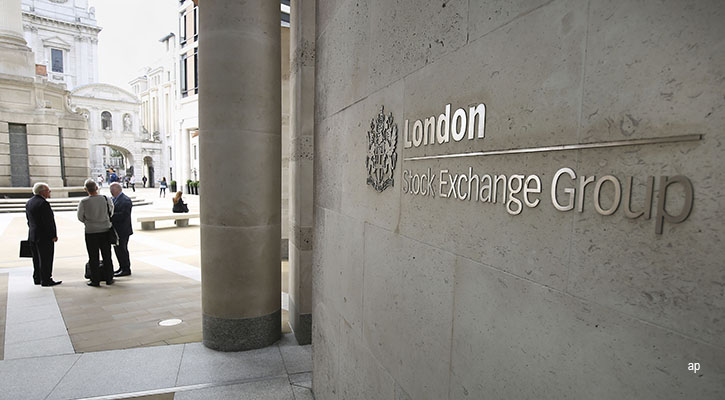Christine Benz: Hi. I'm Christine Benz for Morningstar.
Stocks had one of their best months in October in nearly a decade, but that didn't stop investors from yanking money from equity mutual funds.
On the phone with me to discuss the latest trends in fund flow data is Kevin McDevitt. He is editorial director for Morningstar.
Kevin, thank you so much for joining me.
Kevin McDevitt: Thanks for having me, Christine.
Benz: I guess the headline here, Kevin, is that equity mutual funds really did continue to see outflows in October, even though it was a very strong equity market. What do you think is going on there?
McDevitt: I think there are a couple of things at work. One is, it's just a continuation of the recent trend. This is the sixth consecutive month of outflows for U.S. stock funds. We've also tended to see a bit of seasonality, which we can talk more about. The second half of the year, you tend to see more selling in general for equity funds over the last five years or so. Then I think, also, there is somewhat of a lag effect. As you mentioned, we had a great rally in October, but that was coming off of a pretty sharp fall in September. I think very often there is somewhat of a lag between when investors act and what is happening in the market day-to-day.
Benz: One thing that kind of confounds me, Kevin, is that you say that outflows could actually eclipse what we saw in 2008, which is stunning, given 2008 with such a wrenching bear market. 2011 has not been great, but it's certainly not been anything close to that. What do you think is driving investor sentiment to be so negative?
McDevitt: I think it goes back to some of the things we have talked about in the past, about just how sensitive investors are these days, and how risk-averse they are, and how quickly, I think, they are to take their chips off the table or at least try and reduce risk in their portfolios. So I think it's a combination of things.
I also think ... if you're looking for things to be worried about, there are certainly plenty out there, just between what could happen in terms of economic growth in this country. People are still talking about a possible double-dip recession, and you have all of the concerns in Europe with the sovereign debt crisis. So there is plenty to be concerned about. Then, on top of that, I think it's just the trends we've been seeing, again, with sentiment being fairly negative for the last six months or so. I don’t think it takes much to get investors to do more selling.
Benz: One trend we've be monitoring, Kevin, is this trend of flows into passively managed equity funds. So even though investors were yanking money from stock funds overall, were they sending it to the index funds?
McDevitt: Well, this past month, this is the exception. They actually pulled money from U.S. stock index funds. They pulled about $3.5 billion out of U.S. stock index funds, and that's really somewhat of a surprise. It's only the third month over the last three years in which we have seen more than $1.5 billion come out of U.S. stock index funds.
Over the last three years, as we have talked about in the past, you've had about $68 billion in inflows into U.S. stock index funds, as opposed to the massive outflows we've seen out of U.S. stock funds generally. So, maybe this is an indication of how negative sentiment was in October--the fact that you did see fairly robust outflows out of index funds.
Benz: So, broad-based selling.
I want to shift gears, Kevin, and talk about what you see in terms of the international stock fund flow picture. You mentioned Europe. It's been a big overhang on developed foreign markets. What are you seeing in terms of the trends in fund flows there?
McDevitt: There are a couple of interesting things. One of the strongest themes is how, I guess, how patient U.S. investors have been with international funds and international markets in general, and emerging markets in particular. Emerging markets have had a really rough year in terms of performance. They have fared far worse than domestic equity funds have. The average emerging-market fund is down about 14% for the year-to-date through October, and that's far worse than the average domestic equity fund, which is flat to roughly down a bit through October. But still, investors sent another $2.1 billion or so to emerging-market equity funds.
We haven't seen quite as much enthusiasm for developed-market funds. Investors have pulled some money from the developed-market, traditional foreign stock funds, large-cap foreign stock funds. But even there, even though they have also performed far worse than domestic-equity funds, outflows have not been nearly as severe as they have been on the domestic side, which is, again, I think somewhat surprising, considering how you do have the sovereign debt crisis. If you look for where the real trouble spots are these days, it's overseas, not in the U.S.
Benz: I want to follow up on the point of about emerging markets, Kevin. You mentioned performance has not been good there--in fact, some of those categories in emerging markets have been among the worst performers year-to-date. What do you think investors are latching on to? Is it just the prospect of potentially higher growth over the years in those markets versus what they can get in the U.S. and developed foreign markets?
McDevitt: I think that's a big part of it. I think the strength of that narrative has really sunk in for a lot of investors. The idea that, that's where the grow is, that's where the returns will be, that's where the future is going forward.
Then also, I think with diversified emerging-market funds, you still have very strong long-term returns. So even though things have gone south this year, I imagine a lot of investors are still looking at the very strong long-term returns for many of these funds. I think also there is the diversification aspect. They perhaps look at what's happening in the U.S. or, again, there are some fears about a double-dip recession. Then you have the European sovereign debt crisis, and perhaps there is an element of when to seek out diversification or even somewhat of a safe haven in emerging markets.
Benz: So the flipside of some of the outflows we've seen from certain equity funds is that bond funds have been getting quite a few assets. Flows into them were very robust and really offset the weakness we saw in equity fund flows. What categories have been the big beneficiaries, if investors have been sending money to bond funds?
McDevitt: Far and away, the two biggest beneficiaries last month were intermediate-term bond funds and high-yield bond funds. Intermediate-term funds took in about $9.8 billion. For high-yield funds, it was a little bit less than that, about $8.8 billion, I believe. The flows into intermediate-term bonds were not that surprising, especially in 2009 we saw months where inflows were typically above $10 billion. The real shock, though, was with high-yield bond fund inflows: $8.8 billion is by far the largest month ever. That's the biggest month we've ever seen for high-yield inflows. I'm not sure what exactly is driving that.
Returns ... bounced back a bit in October, but generally they've been pretty volatile for high-yield funds and are not terribly strong year-to-date. It's also striking that, I think, investors have been almost a bit schizophrenic with their approach to high-yield bond funds. You had this great month of inflows, but in the last five months, you've also had huge months of outflows. You had record outflows out of high-yield bond funds just five months ago in June.
Benz: So lot of fickleness going on there. You also mentioned to me, Kevin, that our new category, our new bond fund category, has been seeing pretty significant outflows. What is that category and what do you think investors are responding to there?
McDevitt: Sure. That's the nontraditional bond category, which has a lot of the go-anywhere mandates, a lot of them are open-ended mandates.
Benz: The unconstrained?
McDevitt: Exactly. PIMCO Unconstrained is somewhat the poster child for that category, and that category had been seeing very strong inflows up until a few months ago, because I think a lot of investors were looking for these broader mandates. While they're looking to, it seems, cut manager risk on the equity side, when it comes to bond funds and even some allocation funds, they have been much more willing to give mangers a free hand. But unfortunately, for a lot of these funds, returns have not been that great so far. Overall, the category is down about 1.2% for the year-to-date through October, and that's well below what we're seeing for some of the more mainstream categories, like intermediate-term bond, which is up about 5.3% through October.
So I think maybe there's some disillusionment, and we did see, again, not heavy outflows, but certainly a reduction in ... well, you saw about $1.3 billion-$1.8 billion coming out of nontraditional bond funds, as well as short-term bond funds, and again that's coming off of [those funds] seeing very strong inflows perhaps four or five months ago.
Benz: Kevin. You mentioned PIMCO's Unconstrained Bond. I'd like to also talk about PIMCO Total Return, one of the fund world's biggest asset gatherers over the past several years, but you noted that actually the fund has been seeing outflows recently?
McDevitt: You've got to imagine that's tied somewhat to the disappointment the fund has had this year in terms of performance. As I'm sure many of our listeners know, PIMCO and Bill Gross, particularly, have had a tough year, and have kind of apologized for the fact that they made the wrong bet on U.S. Treasuries, and they have kind of paid the price for it. That said, though, given how big PIMCO Total Return is, you had fairly modest outflows, about $1.2 billion out of the fund. That is something ... it is a reversal from when you had seen stronger inflows earlier in the year, but again relative to the fund's size, it's not too substantial.
Benz: And how about munis?
McDevitt: Munis, flows were still pretty modest. You had about $2 billion for all muni funds, and that's not much to write home about. It is an improvement, perhaps, over earlier this year and late last year after the Meredith Whitney appearance on60 Minutes when you had massive outflows. We have come back from that. But still, muni flows have not really recovered. You haven't really seen the robust flows that you saw in perhaps 2009 and early 2010.
Benz: Kevin, I know you and I always like to talk about what's going on with the fund family flows. We mentioned PIMCO seeing some outflows on some of its big products. How about elsewhere in the fund world? What have been the big beneficiaries and the big losers recently?
McDevitt: Among the biggest fund families, the top five fund families, you really didn't see much strength at all, and that includes even stalwarts such as Vanguard and PIMCO. We mentioned outflows out of PIMCO Total Return and Unconstrained Bond.
You've seen just a continuation of struggles for American Funds and Fidelity fund families. They are families that tend to be associated more with equity funds, and I think a lot of their equity funds are seeing substantial outflows still. You did see a slowdown for Franklin Templeton, too. As many people know, Michael Hasenstab, his two funds, Global Bond and Global Total Return, have seen very, very strong inflows over the past few years, but even that has started to taper off for those two funds.
On the flipside of that, you had good months for T. Rowe Price and for JPMorgan and BlackRock. JPMorgan and BlackRock have been two of the big success stories, I think, over the last year at least. Both have been growing very quickly, and both have strong lineups on the ... fixed-income side. Although with BlackRock, it's had an anomaly with BlackRock Equity Dividend, which is of course a domestic-equity fund, but it still had very strong ... inflows, really bucking that trend that we've seen for other U.S. stock funds.
Benz: Any news on the Fairholme front? I know it's not in the same league as some of those very big shops, but I know it's a fund that a lot of us have been watching pretty closely.
McDevitt: Fairholme did have another month of outflows. They had, I believe, a bit over $600 million in outflows, which is substantial, but is down from recent months when it's had more than $1 billion in outflows. It's definitely a question as to whether or not the outflows will continue to slow. I personally think, barring a major market event, that [outflows] will start to kind of tail-off. I think at this point, pretty much all the new money that came in late 2010 and early 2011 is pretty much out the door at this point. So I think ... the fund is getting down to more of a core shareholder base, and I think that shareholder base might be a bit more resilient going forward, but again, that's all subject to change and subject to ... if there were to be a major correction or even a market crash, then that's all out the window.
Benz: Kevin, when you step back, we focused mainly on October, but how about year-to-date? Would you say the trends are generally similar? How are they the same or different?
McDevitt: Well, relative to other years, we're seeing a real pickup in outflows. And again we've alluded to this earlier in the conversation, but I'm still surprised at how robust the outflows are, considering that ... we've had some shocks, we've had some corrections, but relative to what we have seen in recent years, there's nothing too out of the ordinary. But outflows really have been accelerating, when you are talking about stock funds, and U.S. stock funds in particular.
We continue to see outflows out of money market funds too, an area we haven't quite touched on. Outflows out of money market funds are down from the heavy outflows in 2009 and 2010, but yet they do continue. I imagine this is ... an ongoing response to ... low interest rates in accounts. I also wonder, too, if it isn't related in some way to some of the new legislation. Going forward, investors know that if there were to be another credit crisis, if there were to be another freeze in the credit markets, that this time around, you wouldn't see backup, you wouldn't see governmental support as a money market account-holder. So I wonder if that's perhaps playing on psychology too.
Benz: Well, psychology is definitely the operative word when we look at these fund flows. Kevin, thank you so much for sharing your insights. It's always great fun to talk to you.
McDevitt: Thank you, Christine.
Benz: Thanks for watching. I'm Christine Benz for Morningstar.











.jpg)











